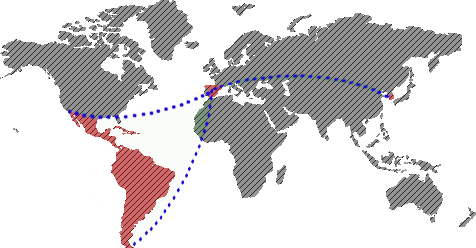Sejong , Sept. 26 ( Yonhap ) - The South Korean government wants to increase his expenses 4.6 percent for next year compared with this year's budget in order to provide more support to the stimulus of prolonged recovery the economy slowed , said Thursday , the Ministry of Strategy and Finance .
According to the ministry, the government will ask the National Assembly to approve his budget proposal of 357.7 trillion won (332.2 billion dollars ) , which is greater than the budget of 342 billion won ( U.S. $ 318,000 million ) for this year.
The proposal, which was endorsed Thursday by a meeting of the Cabinet, will be presented on October 2 Parliament.
The requested budget increase is less than the 5.1 percent increase in the budget for 2013. The lower growth in expenditures occurs against the harsh conditions that make it difficult for the Government to tax sufficient funds.
" We have tried to strike a compromise deal with three things: economic conditions , which have not yet fully recovered , the need to boost the government's main political agenda , and also the need to ensure the fiscal health remains in good shape, " said Minister of Strategy and Finance , Oh Hyun - seok , during a briefing on the budget proposal . "Right now, we need to focus on solving the issues of social welfare , stimulating the economy and , in this sense, our budget proposal is focused on boosting the economy," said Hyun .
The ministry requested that their expenditures on national defense and education will increase by 4.2 and 2.1 percent next year, to 35.8 and 50.8 trillion won ( 33.3 and 47.2 billion dollars), respectively.
It also requested that the expenses policies related to agriculture, fisheries and food increase by 1.1 percent to 18.6 trillion won (17.3 billion dollars), and that the budget for relations foreign and unification will increase 2.1 percent to 4.2 trillion won (3.9 billion dollars).
The ministry cut its infrastructure costs under 4.3 per cent to 23.3 trillion won (21.7 billion dollars), in an apparent attempt to better manage their tight budget for the coming year.
More attention is paid on how much funding the ministry asked for spending on welfare , because the government is trying to expand welfare benefits to a wider group of the population , as promised President Park Geun - hye during his presidential campaign .
The ministry requested that their expenses in the social care sector , including health and employment will increase by 8.7 percent to 105.9 trillion won ( 98.5 billion dollars). Marks the first time that the budget for social assistance exceeds the 100 trillion won ($ 93,000 million) .
It brings to the fore the " basic pension fund " to provide assistance to the elderly citizens , a program that President Park has promised to launch for the elderly population to fight for survival.
Under the program , the government plans to provide 100,000-200,000 won ( 93.04 to 186 dollars) per month to senior citizens 65 years of age or older , and whose income is in the lower range of 70 percent of its group age .
The amount is determined according to how long an individual has subscribed to the national pension program , existing . A subscription longer means less support, as it is considered to have a better social safety net than others.
However, the program is expected to provoke criticism that the Government has broken its promise good welfare for senior citizens , since, under the program , citizens of relatively wealthy seniors not receiving benefits . President Park has promised to provide 200,000 won to all citizens from 65 years of age, under the pension program .
The contraction of support for the elderly is a result of the government is struggling to get enough budget to fund the program , compared to the slowed economic recovery and tax revenue shortfalls .





